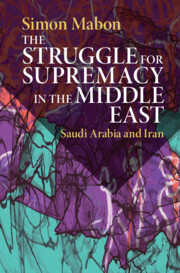51 results
Conclusion
-
- Book:
- Athens, 403 BC
- Published online:
- 28 February 2025
- Print publication:
- 20 March 2025, pp 297-328
-
- Chapter
- Export citation
1 - Introduction
-
- Book:
- The IPCC and the Politics of Writing Climate Change
- Published online:
- 04 July 2024
- Print publication:
- 31 October 2024, pp 1-12
-
- Chapter
-
- You have access
- Open access
- HTML
- Export citation
3 - Situating the IPCC as a Practice of Writing
-
- Book:
- The IPCC and the Politics of Writing Climate Change
- Published online:
- 04 July 2024
- Print publication:
- 31 October 2024, pp 30-45
-
- Chapter
-
- You have access
- Open access
- HTML
- Export citation
Cleavage theory meets Bourdieu: studying the role of group identities in cleavage formation
-
- Journal:
- European Political Science Review / Volume 17 / Issue 1 / February 2025
- Published online by Cambridge University Press:
- 22 October 2024, pp. 110-127
-
- Article
-
- You have access
- Open access
- HTML
- Export citation
Inequality and education in Australia
-
- Journal:
- The Economic and Labour Relations Review / Volume 35 / Issue 2 / June 2024
- Published online by Cambridge University Press:
- 27 August 2024, pp. 221-242
-
- Article
-
- You have access
- Open access
- HTML
- Export citation
Not Billington, not Zoella, and Definitely not a ‘Fangirl’: Social Distinction within Communities of Amateur Theatre Critics
-
- Journal:
- New Theatre Quarterly / Volume 40 / Issue 3 / August 2024
- Published online by Cambridge University Press:
- 10 October 2024, pp. 242-255
- Print publication:
- August 2024
-
- Article
-
- You have access
- Export citation
11 - International Lawyers, Legal Norms, and Contestations of Legal Validity
- from Part III - Meta-theorising, Linkages, and International Law
-
-
- Book:
- Contesting the World
- Published online:
- 01 November 2024
- Print publication:
- 06 June 2024, pp 182-196
-
- Chapter
- Export citation
9 - Agents as Individuals and Dispositions as Plural
- from Part III - Agency
-
- Book:
- Morphogenesis Answers Its Critics
- Published online:
- 28 March 2024
- Print publication:
- 04 April 2024, pp 183-199
-
- Chapter
- Export citation
A Discipline Like No Other: Marginalized Autonomy and Institutional Anchors in French Public Psychiatry (1945–2016)
-
- Journal:
- Comparative Studies in Society and History / Volume 66 / Issue 3 / July 2024
- Published online by Cambridge University Press:
- 27 March 2024, pp. 643-672
-
- Article
-
- You have access
- Open access
- HTML
- Export citation
The Court of Justice of the European Union as a legal field
-
- Journal:
- European Law Open / Volume 2 / Issue 2 / June 2023
- Published online by Cambridge University Press:
- 31 October 2023, pp. 244-270
-
- Article
-
- You have access
- Open access
- HTML
- Export citation
3 - Habit, Habitus and Conscientious Reflection
- from Part I
-
- Book:
- On Global Learning
- Published online:
- 07 September 2023
- Print publication:
- 21 September 2023, pp 74-102
-
- Chapter
- Export citation
Actors, activities, and forms of authority in the IPCC
-
- Journal:
- Review of International Studies / Volume 50 / Issue 2 / March 2024
- Published online by Cambridge University Press:
- 13 June 2023, pp. 333-353
- Print publication:
- March 2024
-
- Article
-
- You have access
- Open access
- HTML
- Export citation
20 - Rules
- from Part III - Media and Modes of Ethical Practice
-
-
- Book:
- The Cambridge Handbook for the Anthropology of Ethics
- Published online:
- 11 May 2023
- Print publication:
- 25 May 2023, pp 508-535
-
- Chapter
- Export citation
1 - States, Sects, and Order
-
- Book:
- The Struggle for Supremacy in the Middle East
- Published online:
- 09 March 2023
- Print publication:
- 16 March 2023, pp 21-50
-
- Chapter
- Export citation

The Struggle for Supremacy in the Middle East
- Saudi Arabia and Iran
-
- Published online:
- 09 March 2023
- Print publication:
- 16 March 2023

White Literary Taste Production in Contemporary Book Culture
-
- Published online:
- 09 February 2023
- Print publication:
- 23 February 2023
-
- Element
- Export citation
Chapter 2 - “Say, What Is Honour?”
-
- Book:
- Honor, Romanticism, and the Hidden Value of Modernity
- Published online:
- 23 February 2023
- Print publication:
- 19 January 2023, pp 52-75
-
- Chapter
- Export citation
6 - Tripoli’s Islamists
-
- Book:
- Sunni City
- Published online:
- 10 November 2022
- Print publication:
- 24 November 2022, pp 175-193
-
- Chapter
- Export citation
Social policy and the judicial making of Europe: capital, social mobilisation and minority social influence
-
- Journal:
- European Law Open / Volume 1 / Issue 2 / June 2022
- Published online by Cambridge University Press:
- 10 August 2022, pp. 257-285
-
- Article
-
- You have access
- Open access
- HTML
- Export citation
2 - Critiques of the Practice Turn in IR Theory
- from Part I - Introduction: Conversations and the Evolution of Practice Theorizing
-
-
- Book:
- Conceptualizing International Practices
- Published online:
- 09 June 2022
- Print publication:
- 23 June 2022, pp 28-44
-
- Chapter
- Export citation

